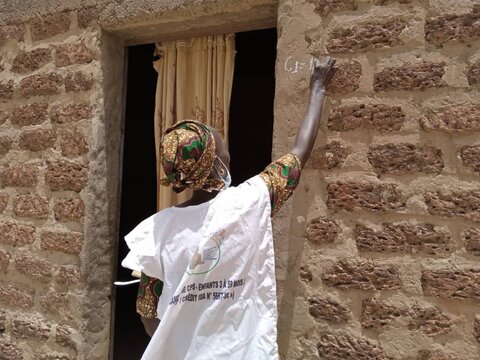Cross-country project
Impact and cost evaluation preparations

Since the start of the project, The LSHTM has identified research partners in each of the four evaluation countries and are in the process of finalizing terms of reference of their collaboration with:
- Malaria Research and Training Centre (MRTC), Bamako, Mali
- University of Conakry, Guinea
- Medical Research Council Unit, The Gambia at LSHTM (MRCG)
- Centre de Recherche Médicale et Sanitaire (CERMES), Niamey, Niger
They have been collaborating with CRS, to ensure key data for the evaluation are documented, notably for the cost analysis, by developing and sharing written guidance and discussing data needs and availability with CRS country teams. The evaluation team contributed to guidance regarding dosing for children aged 5 to 10years old.
The initial proposal from LSHTM was transformed into a detailed research protocol for the evaluation in four countries in anticipation of submission for ethics approval later this year. The evaluation is designed to inform policy-making and operational decision-making about where, and how to expand the implementation of SMC to a 5th cycle or children up to age 10 years old
Specifically, the LSHTM aims to assess the feasibility, impact, and cost-effectiveness of extending SMC to children under 10 in Niger and The Gambia and a 5th cycle in Mali and Guinea within the context of the SMC-Impact pilot. In examining the feasibility, they will use qualitative methods to understand the process, challenges, and lessons learned in extending SMC, alongside quantitative analyses of coverage. In examining impact, they will combine quasi-experimental methods with modelling to estimate reductions both in uncomplicated and severe malaria cases and deaths.
Finally, the evaluation will seek to understand the costs and cost-effectiveness of using available resources to expand SMC. Given the constrained resources available for malaria control and the many choices facing decision-makers, such economic evidence is likely to be key in informing the benefits of SMC scale-up.
Specifically, the LSHTM aims to assess the feasibility, impact, and cost-effectiveness of extending SMC to children under 10 in Niger and The Gambia and a 5th cycle in Mali and Guinea within the context of the SMC-Impact pilot. In examining the feasibility, they will use qualitative methods to understand the process, challenges, and lessons learned in extending SMC, alongside quantitative analyses of coverage. In examining impact, they will combine quasi-experimental methods with modelling to estimate reductions both in uncomplicated and severe malaria cases and deaths.
Finally, the evaluation will seek to understand the costs and cost-effectiveness of using available resources to expand SMC. Given the constrained resources available for malaria control and the many choices facing decision-makers, such economic evidence is likely to be key in informing the benefits of SMC scale-up.